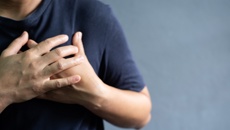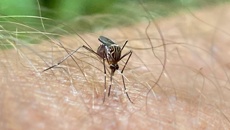Warning: This article is about suicide and may be distressing for some readers.
There would be "nothing worse" in life than losing a child to suicide, says Health Minister Dr Jonathan Coleman.
In an exclusive interview for the New Zealand Herald's Break the Silence series, Coleman said he has known people who have taken their own lives personally and also professionally, during his time working as a doctor.
For the past four months the Herald has repeatedly asked Coleman's office for a sit-down interview with the minister for our special series on youth suicide, but we received only typed responses from his press secretary.
However, on Thursday Coleman broke his own silence, inviting the Herald into his Beehive office to talk about what he deemed as his "top priority": youth suicide.
New Zealand's youth suicide rates are "way too high", Coleman said. "One suicide is one too many so we've got to work on getting that rate down, no question about it.
"We just can't have young people with their whole lives ahead of them taking their lives. It's an absolute tragedy and anyone who reads your series would totally understand that," Coleman said.
This is the final week of the Herald's Break the Silence series, which has been running for the past five weeks. We will be looking towards solutions and ways to reduce our suicide rate over the coming days.
One possible solution raised by advocates is a national suicide reduction target - which had been suggested by an expert advisory panel, but dumped over fears of government accountability earlier this year.
The rejection of the target saw well-known campaigner Mike King controversially step down from the panel and last week it was again called for by a group of New Zealand parents who have lost children to suicide.
During the interview, Coleman announced the target is not off the table. He said he recently met with two international suicide prevention experts and has since asked his officials to re-look at the proposal.
"I don't have any philosophical objection to the target, but people have to realise it can't be [just] a government target. It's a whole of society thing and we are all responsible for getting the suicide rate down. You can't just say 'oh, we're going to leave it to the Minister of Health's office and the Government'."
Every 67 hours a young person takes their own life in New Zealand. That's more than one every three days or 130 a year. We have the highest teen suicide rate in the developed world and the number of people taking their lives each year has remained relatively unchanged for the past two decades.
Mental health issues have skyrocketed internationally over the past few years and every health minister in the Western World is now suddenly facing "this massive issue", Coleman said.
"Every government is looking at new ways of doing things," he said.
Eight years ago, 96,000 people accessed secondary mental health services in New Zealand. That figure ballooned to 168,000 last year, Coleman said, adding that social media and cyber bullying has mounted even more pressures on today's youth.
"These are tough problems and if they were easily solvable they would be, but we can't stop trying. We've got to keep on trying to do better," he said.
When asked why New Zealand has the worst teen suicide rate in the developed world, Coleman said: "I don't think anyone has the exact answer to that." Part of the reason might be tied in with New Zealand not doing enough to build resilience and self-esteem in youth, Coleman said.
"But, more important than speculating on a range of possible reasons is actually taking an evidence based approach that starts to do something about that," he said.
Budget 2017 pushed an extra $224 million towards mental health and that funding boost will see new initiatives and prevention programmes rolled out in coming months.
Coleman would not be drawn on details around those new initiatives, but he gave the Herald a "flavour" of what's being discussed behind closed doors: building resilience in youth, early intervention and screening for mental health issues in youth and "listening to young people and what works for them".
He said he has welcomed the recent national conversation around youth suicide, which he believes the Break the Silence series has helped to ignite.
"There would be nothing worse than losing a child in these circumstances or someone really close to you," Coleman said.
"It is just an absolute tragedy in the true sense for anyone affected by this, but the assurance I can give is that we are committed to continuing to get those rates down and really doing something about this."
WHERE TO GET HELP:
If you are worried about your or someone else's mental health, the best place to get help is your GP or local mental health provider. However, if you or someone else is in danger or endangering others, call 111.
If you need to talk to someone, the following free helplines operate 24/7:
DEPRESSION HELPLINE: 0800 111 757
LIFELINE: 0800 543 354
1737 NEED TO TALK? Call or text 1737
SAMARITANS: 0800 726 666
YOUTHLINE: 0800 376 633 or text 234
There are lots of places to get support. For others, click here.
Take your Radio, Podcasts and Music with you









